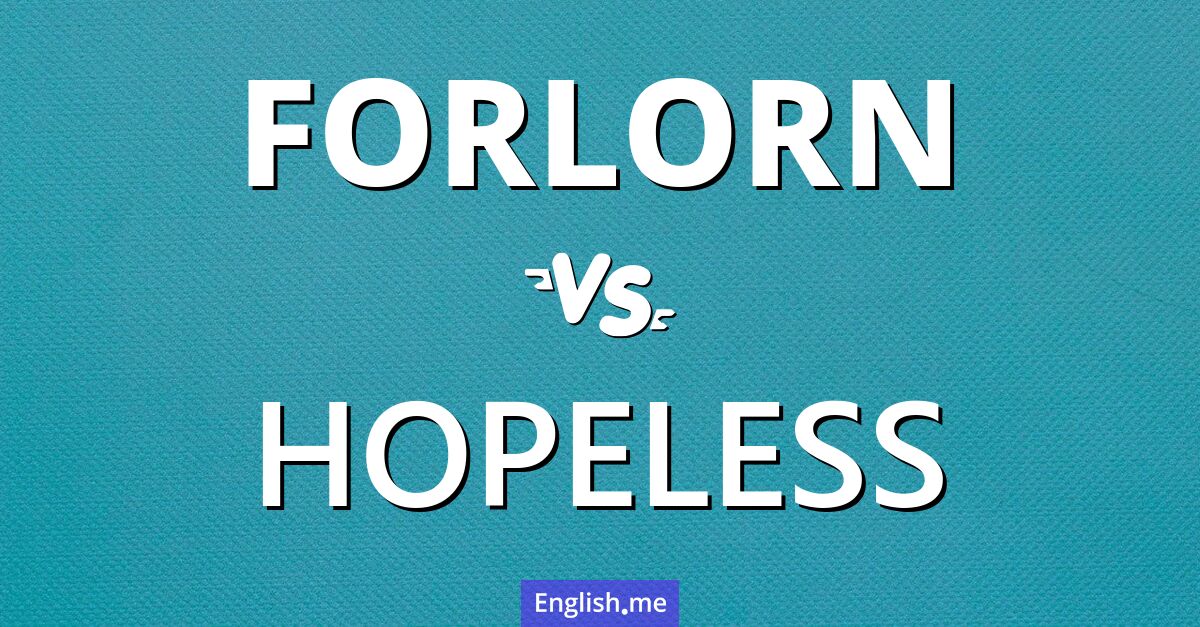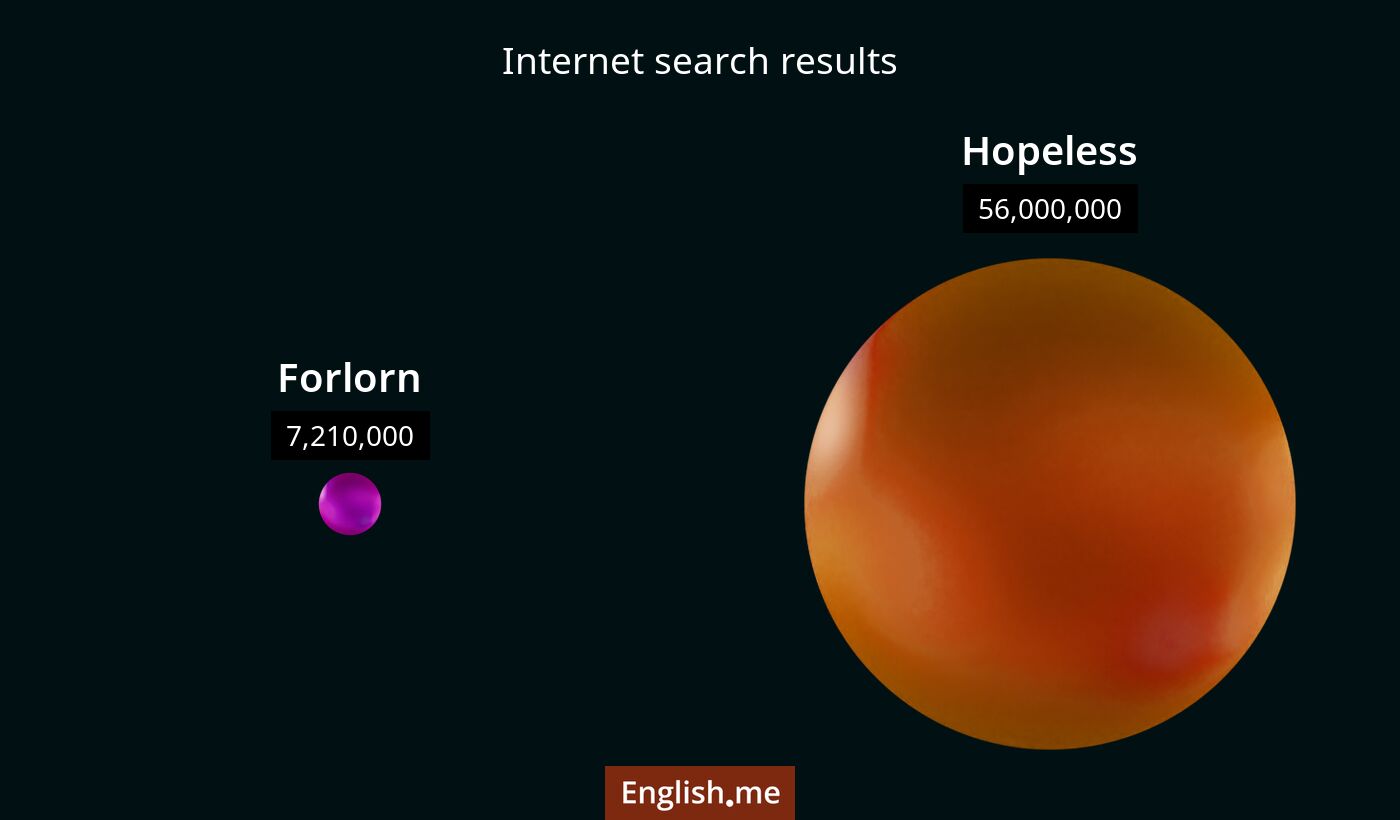"Forlorn" vs. "hopeless": nuances of despair
Reviewed and edited by  Lloyd Cooper 05/08/2025, 23:25
Lloyd Cooper 05/08/2025, 23:25
English.me team member

 What is similar?
What is similar?
Both "forlorn" and "hopeless" describe feelings of despair and a lack of hope. They are often used to convey a sense of sadness, loss, or emptiness.
 What is different?
What is different?
"Forlorn" often implies loneliness or abandonment in addition to hopelessness, carrying an emotional tone of sadness and isolation. "Hopeless" strictly refers to a lack of hope, without necessarily suggesting abandonment or loneliness.
 Which one is more common?
Which one is more common?

 Examples of usage
Examples of usage
Forlorn- She sat by the window with a forlorn expression, staring out into the rain.
- The abandoned puppy looked forlorn in the empty alley.
- After hearing the news, he felt forlorn and alone.
- After so many failed attempts, he felt completely hopeless.
- The situation seemed hopeless, with no solution in sight.
- She gave him a hopeless look, knowing nothing could be done.

 English
English español
español française
française italiano
italiano deutsche
deutsche 日本語
日本語 polski
polski česky
česky svenska
svenska Türkçe
Türkçe Nederlands
Nederlands